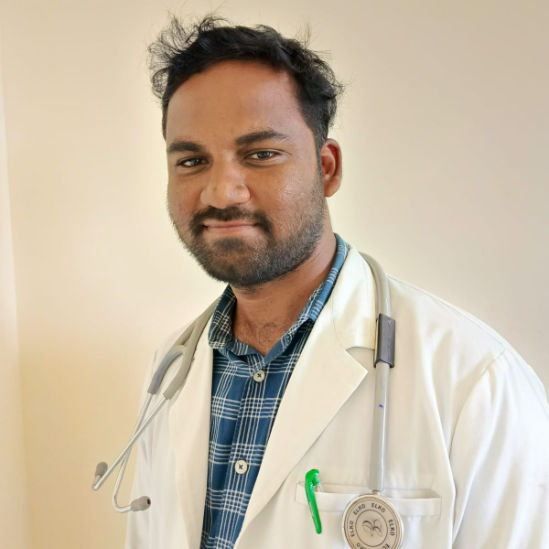Understanding Phantosmia: Symptoms and Causes
Phantosmia is the sensation of smelling odors that aren’t actually present. Learn about its symptoms, causes, and how to manage or treat this sensory condition.

Written by Dr. Rohinipriyanka Pondugula
Reviewed by Dr. Siri Nallapu MBBS
Last updated on 21st Aug, 2025

Have you ever smelled something that wasn’t there, like smoke, burning rubber, or rotten eggs, when no one else could? If so, you might have experienced phantosmia, a condition where people detect odors that don’t exist. While it can be unsettling, understanding its symptoms and causes can help you manage it better.
What Is Phantosmia?
Phantosmia, also called olfactory hallucinations, is when a person smells scents that aren’t present in their environment. These phantom smells can be pleasant or unpleasant and may come and go or linger for a while. Unlike common smell distortions (like losing your sense of smell after a cold), phantosmia involves perceiving smells that simply aren’t there.
Common Symptoms
People with phantosmia may experience:
- Persistent phantom smells – Often unpleasant, such as burnt toast, chemicals, or rotting food.
- One-sided or both nostrils affected – Sometimes, the smell is only detected in one nostril.
- Sudden onset or gradual appearance – It can start abruptly or develop over time.
- Temporary or long-lasting episodes – Some people have brief episodes, while others experience it for months.
If you notice these symptoms frequently, it’s a good idea to consult a doctor to rule out underlying conditions.
What Causes Phantosmia?
Several factors can trigger phantosmia, including:
1. Nasal and Sinus Issues
- Sinus infections, allergies, or nasal polyps can irritate olfactory nerves, leading to phantom smells.
- Postnasal drip or congestion may also contribute.
2. Neurological Conditions
- Migraines or seizures sometimes trigger olfactory hallucinations before or during an episode.
- Parkinson’s disease, Alzheimer’s, or brain tumors may affect smell perception.
3. Head Injuries or Infections
- Trauma to the head can damage smell-related nerves.
- COVID-19 or other viral infections may temporarily alter smell perception.
Consult Top Specialists
4. Medications or Toxins
- Some antibiotics, antidepressants, or chemotherapy drugs can cause smell disturbances.
- Exposure to chemicals or heavy metals (like lead or mercury) may also be a factor.
5. Psychological Factors
- Severe stress, anxiety, or depression can sometimes lead to sensory distortions, including phantom smells.
How Does Phantosmia Affect Daily Life?
Phantom smells can be more than just annoying—they can impact:
- Appetite & Nutrition – Unpleasant odors may reduce hunger or make food taste bad.
- Mood & Anxiety – Persistent smells can cause distress or confusion.
- Safety Concerns – If you frequently smell smoke or gas, you might second-guess real dangers.
Managing Phantosmia
While phantosmia often resolves on its own, these tips may help:
1. Treat Underlying Conditions
- If sinus infections, allergies, or neurological issues are the cause, treating them may reduce symptoms.
2. Maintain Good Nasal Health
- Use a saline nasal spray to keep passages clear.
- Stay hydrated to prevent dry sinuses.
3. Avoid Triggers
- Strong odors (perfumes, smoke) may worsen symptoms.
- Reduce stress through relaxation techniques like meditation.
4. Consult a Specialist
- An ENT (Ear, Nose, and Throat) doctor or neurologist can help diagnose the cause.
- If needed, imaging tests (like an MRI) may be recommended.
When to See a Doctor
Seek medical advice if:
- The phantom smells persist for weeks.
- You also experience headaches, dizziness, or memory problems.
- You suspect it’s linked to a head injury or infection.
If you’re concerned about phantosmia, you can book a consultation with an ENT specialist or neurologist through Apollo 24|7 for expert guidance.
Final Thoughts
Phantosmia can be puzzling, but understanding its causes and symptoms is the first step toward managing it. While it’s often harmless, persistent cases should be checked by a doctor. Simple lifestyle adjustments and medical care can make a big difference in improving your quality of life.
Consult Top Specialists
Consult Top Specialists
Dr. Gaddam Manoj
General Practitioner
1 Years • MBBS
Hyderabad
Aaradhya clinic, Hyderabad

Dr Syed Mateen Pasha
General Physician
2 Years • MBBS
Bengaluru
PRESTIGE SHANTHINIKETAN - SOCIETY CLINIC, Bengaluru

Dr. Anand Ravi
General Physician
2 Years • MBBS
Bengaluru
PRESTIGE SHANTHINIKETAN - SOCIETY CLINIC, Bengaluru

Dr. M L Ezhilarasan
General Practitioner
6 Years • MBBS
Visakhapatnam
Apollo 24|7 Clinic - Andhra Pradesh, Visakhapatnam

Dr. D Bhanu Prakash
General Practitioner
10 Years • MBBS, AFIH, Advanced certificate in critical care medicine, Fellowship in critical care medicine
Hyderabad
Apollo 24|7 Clinic, Hyderabad
Consult Top Specialists
Dr. Gaddam Manoj
General Practitioner
1 Years • MBBS
Hyderabad
Aaradhya clinic, Hyderabad

Dr Syed Mateen Pasha
General Physician
2 Years • MBBS
Bengaluru
PRESTIGE SHANTHINIKETAN - SOCIETY CLINIC, Bengaluru

Dr. Anand Ravi
General Physician
2 Years • MBBS
Bengaluru
PRESTIGE SHANTHINIKETAN - SOCIETY CLINIC, Bengaluru

Dr. M L Ezhilarasan
General Practitioner
6 Years • MBBS
Visakhapatnam
Apollo 24|7 Clinic - Andhra Pradesh, Visakhapatnam

Dr. D Bhanu Prakash
General Practitioner
10 Years • MBBS, AFIH, Advanced certificate in critical care medicine, Fellowship in critical care medicine
Hyderabad
Apollo 24|7 Clinic, Hyderabad




